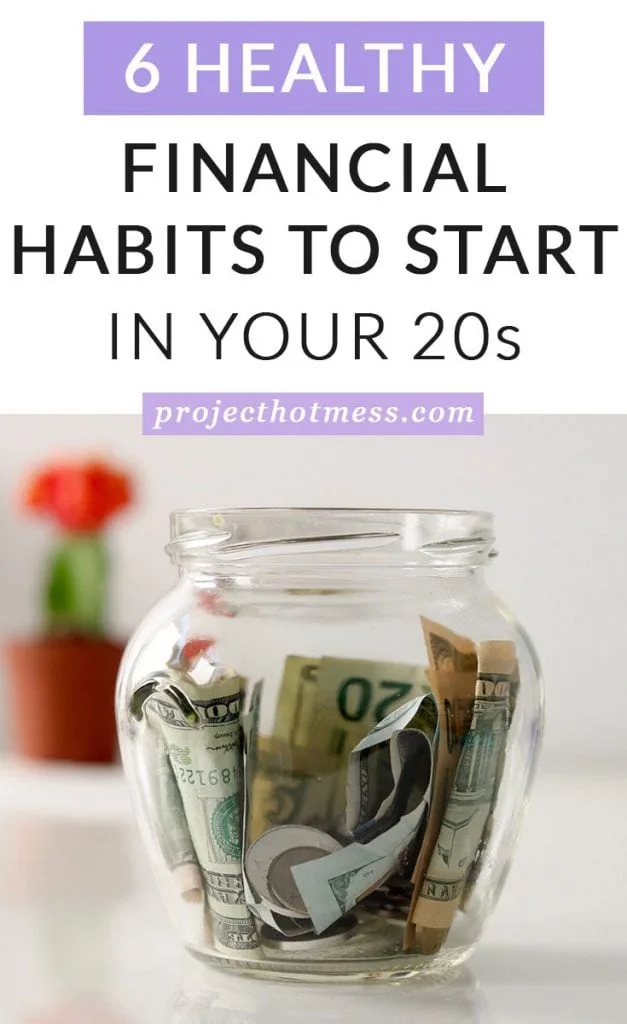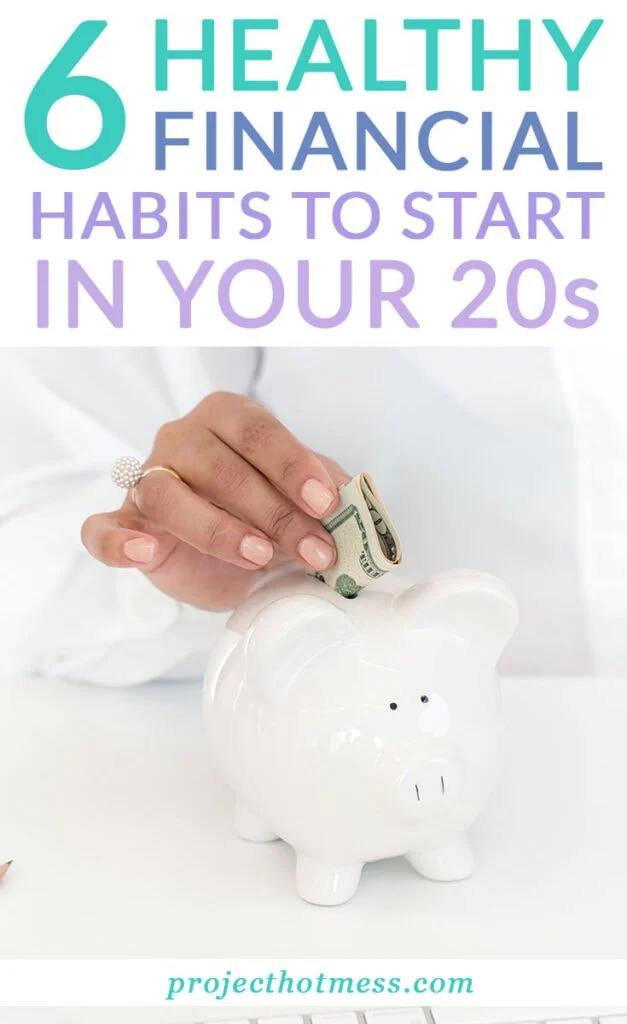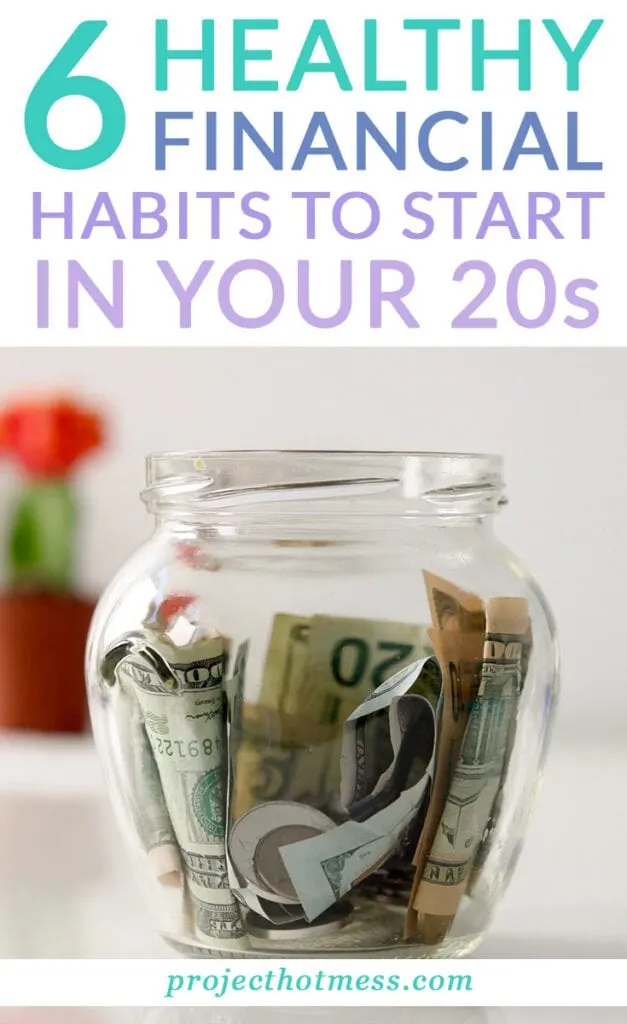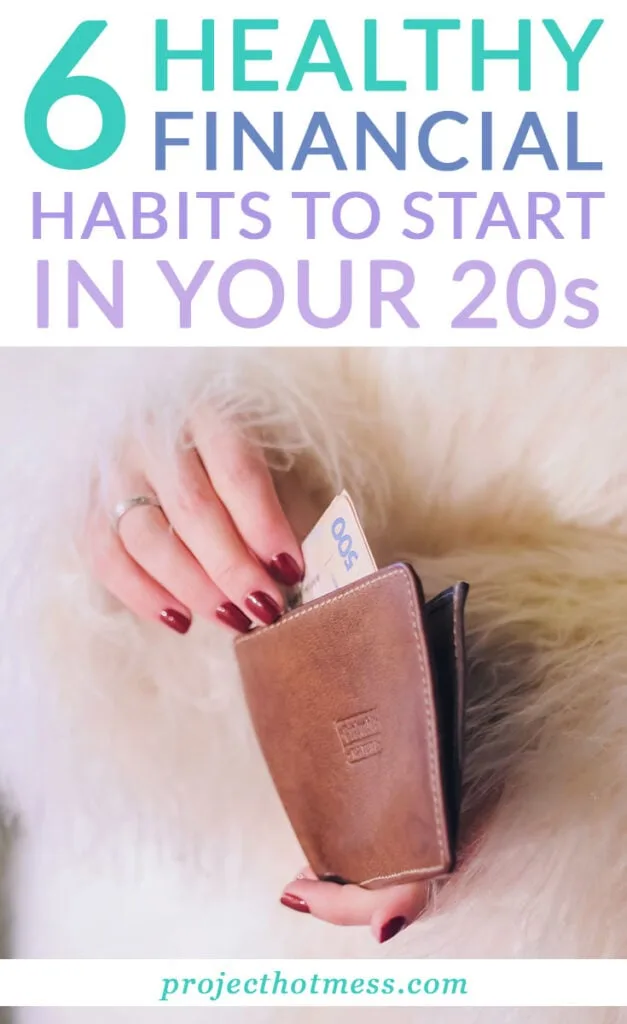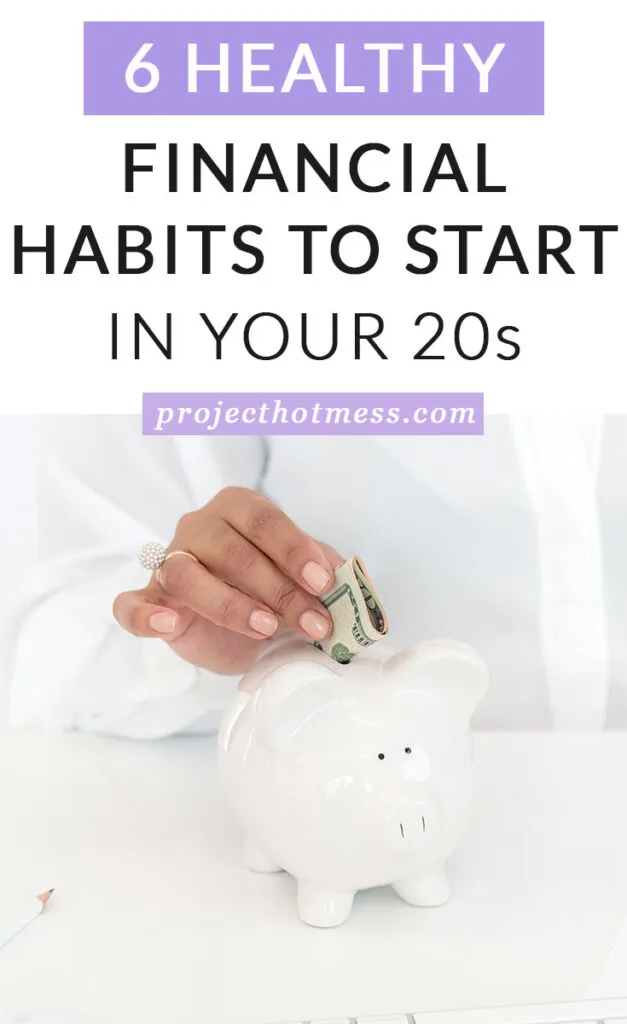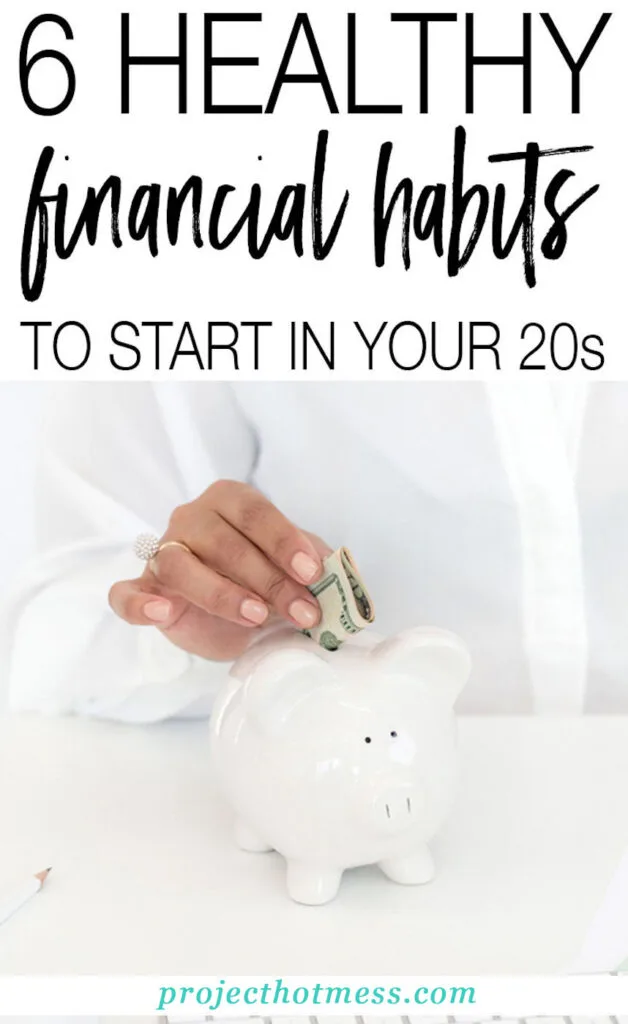Feeling like your twenties is a time when you’re not quite in that ‘adult’ mode yet, and you laugh with your friends over how broke you are by the end of the weekend? This is not how your twenties are meant to be.
In fact, there are some really healthy financial habits to start in your twenties that will set you up for financial success in the future.
If you’re anything like me, when you’re in your early twenties you think that money is something you’re supposed to worry about as an adult, and there’s always more of it…
But from someone who spent years recovering from her financial mistakes, I can tell you – your early twenties can make or break you financially.
So, take the time to create some of these healthy financial habits and I assure you, you will take me for it later.
Because while you might not want to ‘adult’ yet, you’re here, and you’re an adult, so why not make the most of it. Start with these financial habits:

1 – Having An Emergency Account
Before you tell me that your credit card is for emergencies only, let me stop you right there. Your credit card is not, I repeat IS NOT, your emergency account. And your emergency account isn’t a spare spendings account either.
While you may think you’re infallible (all twenty-somethings are, I was!!) things do come up and when you don’t have the cash on hand to fix them, it can totally derail everything.
From your car breaking down, to water damage in your house, to needing to cover extra rent because a roommate moved out, your emergency account has your back.
You should start by saving up $1000 in the account, this will get you out of most emergencies. But you should also aim to then add to it so you have at least a few months worth of expenses covered.
I cannot tell you how much stress an emergency account would have saved me.

2 – Not Using A Credit Card (And Avoid Debt)
While we are on the topic of Credit Cards, you should do everything in your power to avoid having one and if you do have one, pay it off fast.
While some people argue that a credit card is a great way to build up your credit rating, statistics show that this is just not what people use them for. Credit cards get abused and out of control – they are like a gateway drug for massive debt.
Find other ways to build up a positive credit rating that doesn’t cost a fortune (credit cards are expensive) and that you have less chance of losing control over.
A small loan paid off fast could be a better option for you than a credit card for the same value that you can repeat purchases on.
Rolling debt is a trap so many twenty-somethings fall into, under the guise of ‘needing to build up your credit rating’. If you want to know exactly what you need to do to build up a positive credit rating, see a financial advisor.
The advice from your great Aunt Jo’s second niece is not specific advice for you – whereas a financial advisor can take a look at your specific situation and give you tailored advice (so worth it).

3 – Creating A Budget That Works For You
In my early twenties, I believed budgeting was for people who didn’t earn much money or who were bad at managing their money. Clearly, I did not believe I fell into either of these categories, although looking back on it I most certainly did.
Here’s the thing. Budgeting isn’t about restricting what you can spend, it’s about being confident in your understanding of how much you can spend.
You budget for your financial goals (see next) and work everything else out around these. Budgets aren’t meant to be restrictive, and if you budget yourself to a dime and don’t allow enough money for you to enjoy yourself, then you’re never going to stick with it.
This is why it’s important to learn how to create a budget that works for you.
Using a budget template can help, download a free one here:
4 – Creating Financial Goals
What do you want to achieve with your money? Do you want to buy a house someday? Travel Europe? Backpack across the country?
Whatever your financial goals are, you should learn how to make a plan to achieve them, and work towards making them happen.
Your twenties is this amazing time where you have more freedom than you even realise – so make the most of it.
You don’t have to set yourself up with a white picket fence if that’s not your dream. Work out what it is you want, and make it happen.

5 – Educate Yourself About Money
When I was in my early twenties, my understanding of money was from what I had ‘learnt’ from watching my parents as I grew up. And if your parents are much like mine, then money wasn’t something that was talked about a lot – therefore my knowledge of money was very limited.
If I wanted to learn about finances, I figured I’d have to go to a financial advisor, but I thought that was just something that middle-aged people did to plan for their retirement. I was very naive.
Now, you have an absolute wealth of knowledge at your fingertips. You can download a personal finance book in seconds, you can read through articles online and take courses to help you learn more about money, you can even binge watch TED Talks about money (my fave). The amount of information available is incredible.
When I started learning about personal finance (and still now) I devour as much information as possible. Sure, some of it isn’t relevant to me, and over time I’ve learned how to filter what I want to do and what I’d rather pass on, but the point is, I consumed everything I could on personal finance knowledge, and I am so grateful I did.
Next time you’re in the car, pop on a personal finance podcast. Read the articles on this site or any other finance articles that resonate with you.
Talk to your friends and family about money, some might not be as forthcoming and that’s okay. But the only way we learn more about something is if we talk about. it.
Learn all you can now and continue to develop your knowledge. Understanding your money is one of the most powerful things you can do.
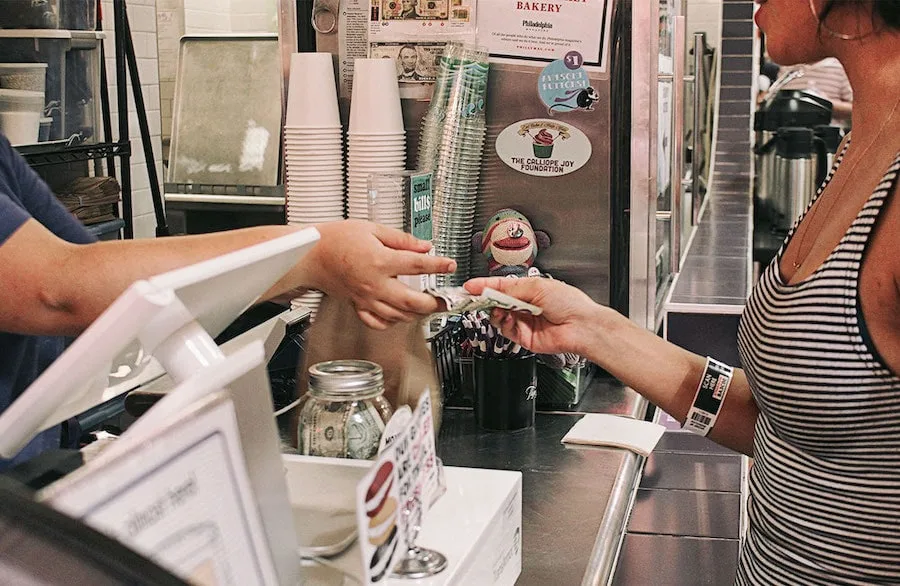
6 – Be Selfish With Your Money
Before you get all up in arms saying we are supposed to give generously and that giving is a fantastic money mindset (I agree), this may not mean what you think.
It took until my late twenties to realise that there was so much power in financial autonomy. That as a strong, independent woman who had an amazing career, I should have protected my financial independence more.
Instead, I was too quick to join finances when I was in relationships, and lacked financial confidence.
This is what I mean when I say you should be selfish with your money in your twenties. You should learn how to make your money work for you, how to use money to achieve your financial goals and how to use it to create a life you love.
Your twenties is a wonderful time to set yourself up financially (and this doesn’t mean to save every cent and buy a house unless that’s what you want to do). Use your twenties to create healthy financial habits and reap the benefits for the rest of your life.
